I am new to Azure related concepts and am facing issue in connecting the Azure Key vault.
Please find my code snippets as follows and let me know why am getting the below exception:
Get Key started.../n SLF4J: Failed to load class "org.slf4j.impl.StaticLoggerBinder". SLF4J: Defaulting to no-operation (NOP) logger implementation SLF4J: See http://www.slf4j.org/codes.html#StaticLoggerBinder for further details. Get Key failedjava.lang.RuntimeException: java.util.concurrent.ExecutionException: com.microsoft.aad.adal4j.AuthenticationException: {"error_description":"AADSTS70002: Error validating credentials. AADSTS50012: Invalid client secret is provided.\r\nTrace ID: 13f8e909-89d8-472f-a1c1-9f4bcf693700\r\nCorrelation ID: bf818c41-4092-4f7d-8292-b1275a5da62f\r\nTimestamp: 2017-10-17 07:22:12Z","error":"invalid_client"} Exception in thread "main" java.util.concurrent.ExecutionException: java.lang.RuntimeException: java.util.concurrent.ExecutionException: com.microsoft.aad.adal4j.AuthenticationException: {"error_description":"AADSTS70002: Error validating credentials. AADSTS50012: Invalid client secret is provided.\r\nTrace ID: 1234\r\nCorrelation ID: 123456\r\nTimestamp: 2017-10-17 07:22:12Z","error":"invalid_client"} at com.google.common.util.concurrent.AbstractFuture$Sync.getValue(AbstractFuture.java:299) at com.google.common.util.concurrent.AbstractFuture$Sync.get(AbstractFuture.java:286) at com.google.common.util.concurrent.AbstractFuture.get(AbstractFuture.java:116) at Program.main(Program.java:88)
Corresponding Code am trying to connect Azure Key Vault :
KeyVaultCredentials kvCred = new ClientSecretKeyVaultCredential("clientID", "client Secret");
KeyVaultClient vc = new KeyVaultClient(kvCred);
byte[] byteText = textToEncrypt.getBytes("UTF-16");
/*************************************/
// Get Key from Key Vault
System.out.println("Get Key started.../n");
start = System.currentTimeMillis();
ServiceCallback<KeyBundle> serviceCallbackgetkey = new ServiceCallback<KeyBundle>(){
@Override
public void failure(Throwable t) {
System.out.println("Get Key failed"+t.toString());
}
@Override
public void success(KeyBundle result ) {//ServiceResponse
System.out.println("Get Key Success");
JsonWebKey myKey = result.key();
keyIdentifier = myKey.kid();
System.out.println("Key ID:"+keyIdentifier);
end = System.currentTimeMillis();
formatter = new DecimalFormat("#0.00000");
System.out.print("Get Key Execution time is " + formatter.format((end - start) / 1000d) + " seconds\n");
start = 0;
end =0;
}
};
ServiceCall<KeyBundle> call = vc.getKeyAsync(keyVaultURI, "MyKey1", serviceCallbackgetkey);
System.out.println(call.get());
Note: Am using the same Client-ID and Client Secret in postman for connecting a different REST api and is working fine.
Also, I tried executing the following code from here. But facing same issue.
Please help me identifying why am unable to connect the vault.

